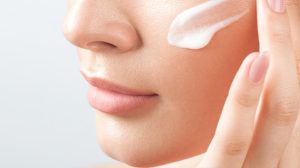
When two or more amino acids string together to form a chain, a peptide is formed. Peptides are the building blocks of proteins, and they act as a component of collagen, elastin, and keratin. They have several functions in the body and are also used in the production of various medicines. Depending on the number of amino acids in a chain, peptides can be categorized in the following ways:
- Dipeptide – two amino acids
- Tripeptide – three amino acids
- Tetrapeptides – four amino acids, and so on.
Functions of peptides
These substances can be found in all living organisms, and in humans, they are present in all cells and tissues of the body. For the body to remain functional and healthy, proper maintenance and mechanism of peptides are crucial. The function a particular peptide performs in the body is largely determined by its structure. Some of these include:
- Vasopressin, a peptide secreted in the brain, assists kidneys in absorbing water by regulating extracellular fluid
- Known as the ‘love hormone’, oxytocin is a peptide formed by nine amino acids and is also secreted in the brain. Oxytocin plays a vital role in childbirth by facilitating the production of milk.
- Angiotensins are proteins that are responsible for the regulation of blood pressure and the maintenance of fluid balance in the body. Produced in the liver, these peptides cause blood vessels to narrow in order to keep blood pressure in check.
- The peptide hepcidin found in the body regulates the body’s iron levels and plays a key component in iron metabolism
- Peptides with antimicrobial properties are pivotal in the treatment of conditions such as HIV and pneumonia
Uses of peptides
Peptides possess many advantageous properties that are beneficial for medical purposes. They are antioxidant, antimicrobial, and also contain anti-clotting properties. Certain peptides are used to create medicines for diseases like diabetes, insipidus, Alzheimer’s, autism, and more. Moreover, they also play a major role in cancer treatment as well as the creation of vaccines. To have access to the best peptides online, individuals should seek websites that are credible and reliable.
Health benefits of peptides
Peptides can have beneficial effects on the human body in multiple ways. This includes:
Anti-Aging –
Many antiaging cosmetics use peptides due to their ability to induce the production of melanin. Melanin protects the skin from sun damage and keeps the skin looking youthful by reducing wrinkles. Peptides also act as the building blocks of collagen—a chemical found in the skin that improves its elasticity.
Enhanced bone density –
Collagen is an extremely strong substance found in bones but with age, they tend to become weak. Daily collagen supplements can alleviate this by enhancing bone density.
Improved healing –
Collagen boosts the body’s ability to heal itself, and daily supplements can lead to faster recovery from wounds, as well as the better rebuilding of skin.
Better hair –
Due to the presence of collagen in hair, peptide supplements can contribute to thicker and healthier hair.
Many medicines and cosmetics make use of peptides due to their innumerable benefits. They are influential in the treatment of major diseases and also contribute to a healthy and well-maintained body. However, the side effects of peptide supplements are still under research, and individuals seeking to use them should only do so after consultation with a healthcare professional.


